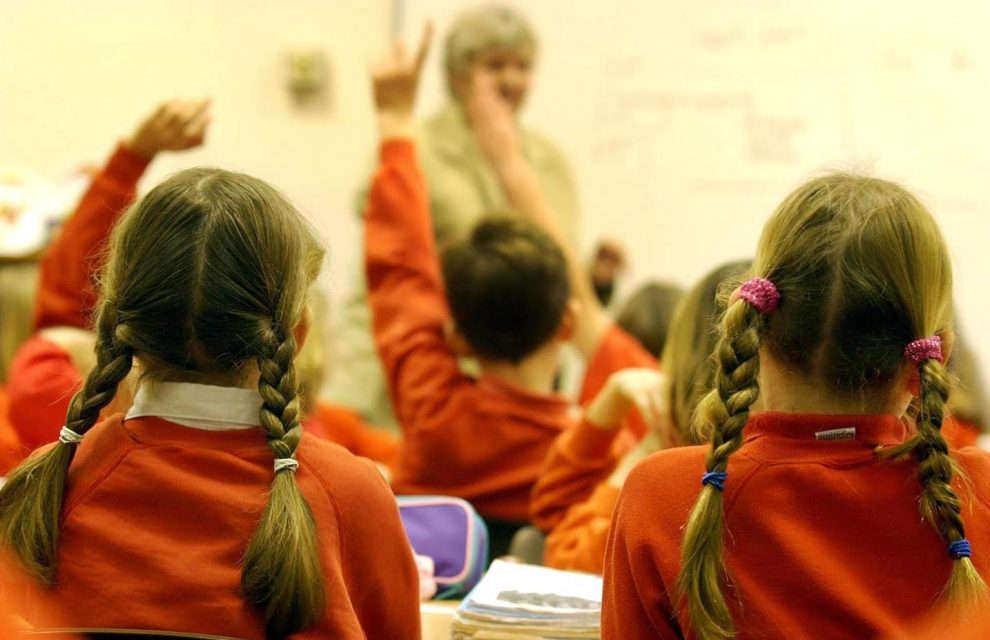EDUCATION Minister Kirsty Williams published the revised Curriculum for Wales guidance on Tuesday, January 28.
Ms Williams confirmed an additional £15m to support teachers as they prepare for its implementation.
The Minister said: “I am delighted to publish the revised guidance today for our new, completely reformed, made in Wales, school curriculum.
“This is a huge landmark for Welsh education – I am proud that we are leading the way on education reform and focusing on the knowledge and skills our young people need to become rounded citizens of Wales and the world.
“The new guidance has been revised following extensive feedback from the draft curriculum published in April 2019 – it is simpler, shorter and gives every school in Wales the opportunity to design their own curriculum within a national approach that ensures consistency.”
The Minister continued: “I would like to thank practitioners for their commitment over the last three years in drafting this guidance.
“I would also like to thank the individuals and organisations who engaged during the feedback phase last year after the guidance was released in a draft form.
“The high quality and detail of these contributions have helped us make significant improvements.
“Improving education is our national mission and nothing is as essential as universal access to the experiences, knowledge and skills and that our young people need for employment, lifelong learning and active citizenship.”
The Minister also confirmed an additional £15m would be made available next year to support the curriculum’s implementation, with £12m going directly to schools for professional learning.
“Empowering our profession and building confidence will be key to implementing and delivering the new curriculum,” the Minister said.
As part of the National Approach to Professional Learning, there will be an additional INSET day for the next three years, a total of 18 over three years, with resources developed for schools to use.
The Minister also confirmed plans to publish the curriculum’s implementation plan after Easter.
The plan will provide a clear outline for implementation based on where schools should be focusing their efforts at different points up to 2022 and how they will be supported in doing this.
The Minister said: “Schools should not rush into trying to plan for this, now is the time for every practitioner across Wales to look at what has been published.
“Schools should take space and time to understand the model of the curriculum, engage with the materials and literature and start to discuss how their vision and values will eventually help shape their curriculum.
“The next step in our reform journey is to prepare the profession to make it real in every classroom and for every learner in Wales.”
David Evans, Wales Secretary of the National Education Union Cymru said: “Our members will have 2 years to plan for first teaching in 2022 – at this point, there is a lot to take in. Our members welcome the principles behind the curriculum.
“It is critical now that education professionals have the time and space to digest these new documents and plan how they can make the curriculum suitable for learners in their school.”
“Critical, too, is that the WG considers the impact on education professionals in terms of their wellbeing. We need to ensure there is a thorough impact assessment of workload related to the curriculum.
“We hope that the planned survey of education professionals will include questions on workload and the curriculum and that WG undertakes mitigating activity moving forward.”
Shadow Minister for Education Suzy Davies AC, said: “Welsh Conservatives have long argued that we should let teachers teach, and some of the changes proposed in this draft document already have – in principle – our support.
“We will, of course, be looking for greater information on what scrutiny will look like in future accountability and measurability.”
Mrs Davies questioned, however, the implementation and deliverability of the proposed document, saying: “We’re having to wait 18 months or so for some key frameworks and guidance, not least on the more sensitive areas of the curriculum. That doesn’t give practitioners time to get to grips with this before September 2022 when the new curriculum is to be implemented for the first time.”
Ms Davies referred to the announcement made last week that parents would stop having the right to withdraw their children from learning about religion, relationships and sexuality in the new Curriculum.
“Considering how much work has already gone into this, I might have expected more clarity on these sensitive issues by now.
“It’s also unclear as to how families and communities will be involved in developing the local curricula anticipated by these changes. That is significant work given the government’s insistence on abolishing the parental right to withdraw a child from particular lessons.
“Withdrawing a right even if it is the name of another right needs close examination. The government may be convinced but they need to make their case before they convince the rest of us. I look forward to the Assembly scrutinising this closely as it did with the smacking ban.
She said that she hopes to see a move away from sitting 13 or 14 GCSEs to prove a learner’s ability, adding: “Because there comes a point where you can be asked to do too much, and if we are to avoid teaching to the exam, we still will need to find a way for pupils to demonstrate their attainment across a broader curriculum.
“We will, of course, be looking for greater information on what the curriculum prompts for future accountability and measurability.”
New curriculum’s cautious welcome















Add Comment